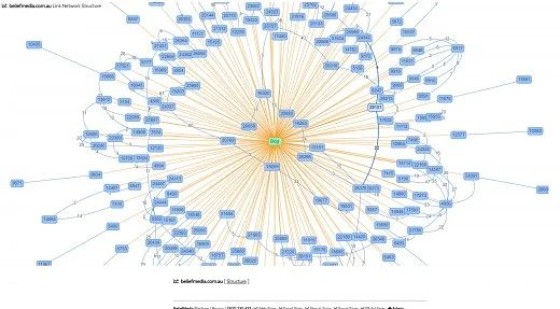If we're supporting your SEO efforts (or you apply your own SEO efforts), your broader linking matrix is one we need to understand, so we've created a very comprehensive 'link' module.
When a page on any of your websites is published Yabber ingests the page and create a full analysis of readability, keywords, links, videos, and other objects. That data is all crunched up and returned in a number of aggregated graphs that visually inform you of how your website is connected.
Since all our websites are fully integrated, the data captured is extensive and without exclusion. A section within the SEO module titled "Structure" provides valuable feedback on your internal links, link order, anchor tags, most linked pages, pages with most links, and external linking. Each section provides a link to a page with more comprehensive data for each of your registered websites.
At the heart of your anchor text is how your string of text compares against similar and competing anchor 'keywords'. Far from a single source of page content, the anchor text does provide significant link context, and it does contribute towards how that link is scored as part of your broader page matrix.
We link each anchor tag to a page with Google Trend information. Based on anchor text we query a number of sources for competing, long-tail, and more relevant keywords, and we return your single anchor text compared against other popular search terms.
Bottom line: Belief's SEO module is extensive, and the importance assigned to website links is absolutely not ignored. You will *not* find a more complete and comprehensive SEO focus in the industry (or any other industry, really). You'll find more information on our blog.





